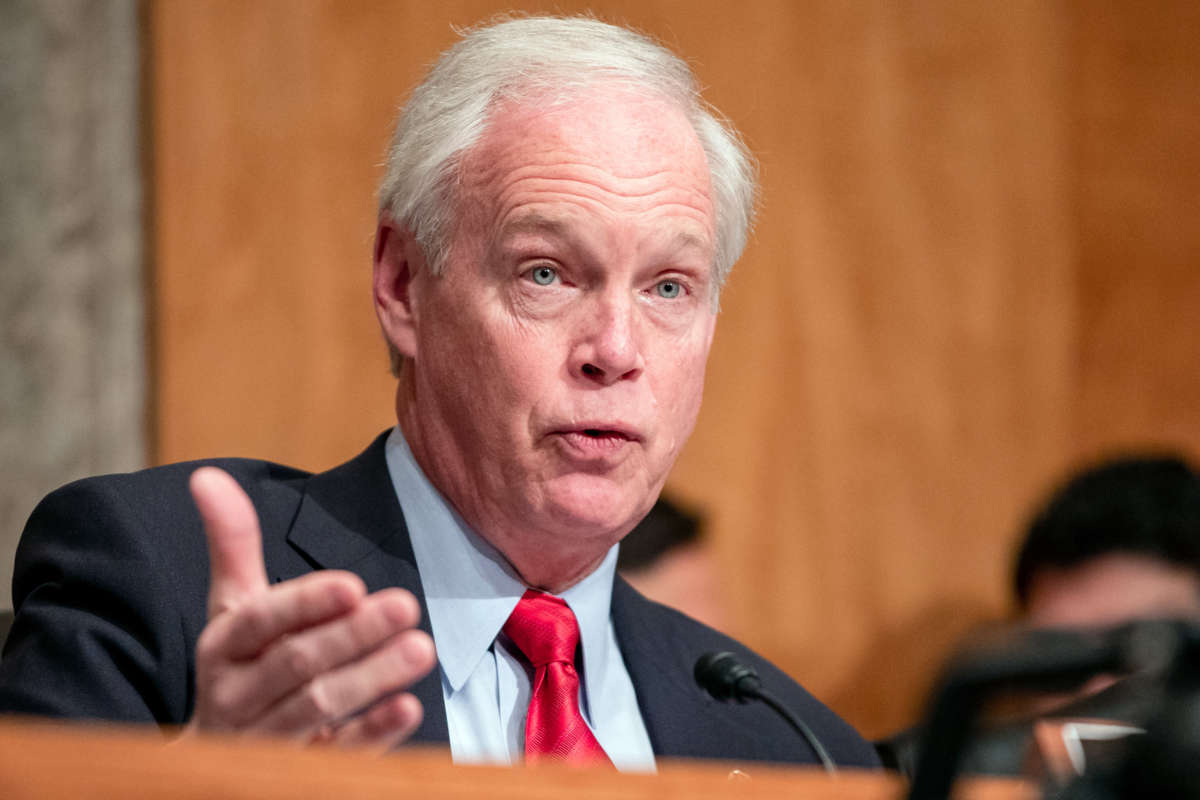During a town hall meeting last week, Sen. Ron Johnson (R-Wisconsin) told listeners that coaxing retired Americans back to work with tax incentives could be an “innovative” way to deal with so-called “labor shortages.”
Johnson is currently seeking a third Senate term in this year’s midterm races despite promising to retire after two terms. According to The Wisconsin State Journal, he has proposed the idea for seniors to reenter the workforce numerous times over the past few months, and reiterated the call during a recent event in Neenah, Wisconsin, claiming it could be a solution for businesses that are struggling to hire and retain workers.
“We could encourage seniors to get back in the workforce, those who are able to, by just saying, ‘We’re not going to charge you payroll tax. You’re not paying it now. Come back into the workforce, and we’ll waive the payroll tax,'” Johnson said during the town hall.
Economists largely agree that providing better working conditions and higher incomes to workers is the best way to address the issue — not coaxing seniors back to the workforce by telling them they can return to work without paying income taxes.
Untaxed payroll wages would reduce payments to Social Security and Medicare, programs that millions of retirees in the U.S. depend on to stay afloat.
“I can see Sen. Johnson’s plan as having a small, positive benefit toward the goal of encouraging older adults to reenter the workforce,” Cal Halvorsen, an assistant professor at the Boston College School of Social Work, said to The State Journal. “Yet, I also worry about the effect on the federal budget overall and, in particular, the Social Security retirement program, which would lose money at a point when Congress still hasn’t fixed the projected budget shortfall in 2035.”
Democrats panned the idea, pointing out that the policy would be exploitative and harmful to seniors. Lauren Chou, a spokesperson for Democratic Senate nominee Mandela Barnes, who is running against Johnson this fall, said the proposal by the GOP lawmaker would be tantamount to “hanging seniors out to dry.”
Barnes has also criticized Johnson over his anti-senior stances.
“Why is Ron Johnson waging a war on our seniors and the benefits they’ve worked towards their entire lives?” Barnes asked in a recent tweet.
Johnson’s proposal comes weeks after he suggested that Medicare and Social Security budgets should be up for yearly votes in Congress instead of being automatic, a move that could potentially disrupt benefits for retirees due to the high likelihood of partisan battles over the amounts that should be allocated to the programs.
The White House condemned Johnson’s idea in August, saying that it would put programs that help millions of Americans “on the chopping block.” Senate Majority Leader Chuck Schumer (D-New York) also blasted Johnson’s proposal, noting that he and other Republicans were “saying the quiet part out loud” when it comes to their plans to dismantle social spending programs that many retirees depend on.
Our most important fundraising appeal of the year
December is the most critical time of year for Truthout, because our nonprofit news is funded almost entirely by individual donations from readers like you. So before you navigate away, we ask that you take just a second to support Truthout with a tax-deductible donation.
This year is a little different. We are up against a far-reaching, wide-scale attack on press freedom coming from the Trump administration. 2025 was a year of frightening censorship, news industry corporate consolidation, and worsening financial conditions for progressive nonprofits across the board.
We can only resist Trump’s agenda by cultivating a strong base of support. The right-wing mediasphere is funded comfortably by billionaire owners and venture capitalist philanthropists. At Truthout, we have you.
We’ve set an ambitious target for our year-end campaign — a goal of $125,000 to keep up our fight against authoritarianism in 2026. Please take a meaningful action in this fight: make a one-time or monthly donation to Truthout before December 31. If you have the means, please dig deep.
